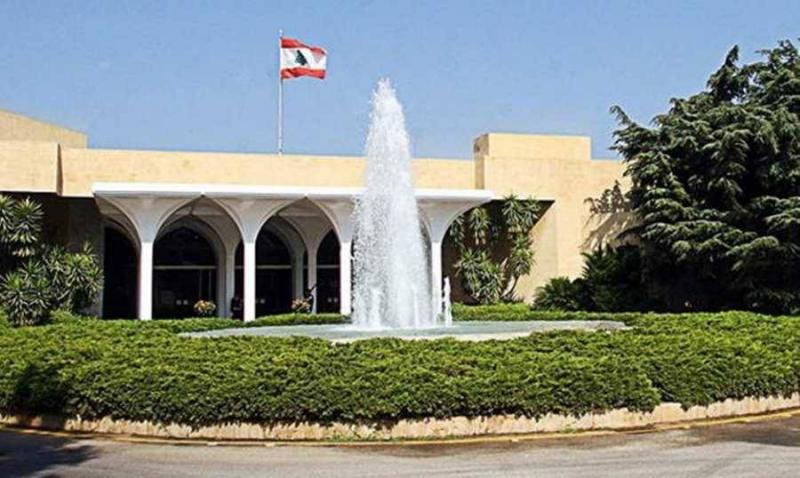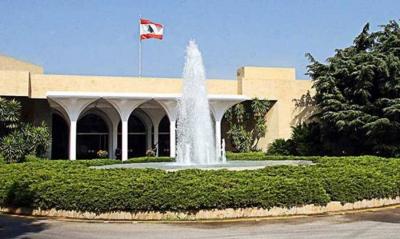The candidate from the "third option" is currently advancing in the presidential race, surpassing others these days. This is evident from the movements of all concerned parties, including ambassadors from foreign and Arab countries (the quintet that includes ambassadors from the United States, France, Egypt, Qatar, and Saudi Arabia), international envoys, among them former French Foreign Minister Hubert Védrine and new individuals such as American international mediator Amos Hochstein, alongside local parliamentary blocs including the "National Moderation" bloc from the north. There is movement on the southern front with Israel, and internally, to fill the vacancy in the presidency that has existed since October 31, 2022.
Lebanon's factions are currently negotiating with each other, either directly or through intermediaries via foreign envoy or members from major blocs, or independently trying to bridge differing viewpoints, including MP Ghassan Skaf from Western Bekaa. The exploration of the Lebanese presidential file is no longer a closed matter, even if the process has not completely opened yet, with each conflicting faction clinging to its own cards of power.
A development that has come to light is what the head of the "Strong Lebanon" bloc, MP Gebran Bassil, reiterated: the "Shia duo" cannot go to the parliament to elect a president without prior knowledge of the name of the prospective president.
From another angle regarding the main issue, Speaker of the Parliament Nabih Berri's move to hold open electoral sessions in successive rounds, a political source told "Al-Anbaa" that Berri prefers to reach an understanding with everyone in advance, "to avoid unpleasant surprises" that could arise from the presidential elections, such as the victory of the candidate supported by the "Shia duo," the head of the "Maronite Movement," Sleiman Frangieh, in either the second or third round through an absolute majority (half plus one), gaining 65 votes.
The source mentioned that President Berri "dislikes the idea of a president winning in the ballot box in a way that might provoke a large segment concerned with the presidency, namely, the Christian sects and their national Maronite leadership in Bkirki." Berri avoids the "single vote" margin that tips the presidential balance in favor of Frangieh, as occurred with his grandfather Sleiman Franjieh in the third round of the presidential elections in 1970, when he received 50 votes compared to 49 for the opposing candidate, then-Governor of the Bank of Lebanon, Elias Serkis. At that time, Vice President Michel Sassine announced "in the name of the Lebanese people and according to Article 49 of the Constitution" the victory of Frangieh in the presidency, after Speaker Sabri Hamada refrained from taking this step and left the general hall to his office in the parliament building in Martyrs' Square.
President Berri does not want to close the presidential file with a winner and a loser, thus he calls for prior agreement which, as he believes, lays the groundwork for a successful term. This position may not align with what has been raised regarding the solution proposed by international envoy Hochstein for a dual presidential solution with Frangieh in the presidency and Ambassador Mustafa Adib in the governmental palace as Prime Minister. This step reflects an essential component of the initial French initiative that called for naming Frangieh as president.
As for the "third option" proposed for discussion, it may not face objections from the "Shia duo" alongside President Berri, marking its first step toward agreement and dropping reservations on all candidates, including Sleiman Frangieh and Army Commander General Joseph Aoun.
The Hezbollah delegation reiterated to former President Michel Aoun the necessity of separating the Lebanese presidential entitlement from the war in Gaza. This step indicates a "give and take" regarding the specifications of the new president and thus his name.
President Berri's mention of a serious presidential candidate while asking one of the factions, "Will you accept him?" is only from the perspective of flexibility and an olive branch to those opposing the "duo's" support for Frangieh. The candidate in question holds "undisclosed external guarantees," according to a prominent lawyer and political activist.
The presidential solution must inevitably reflect a resolution in the vacancy of the governmental palace in the new era, with the entity proposing the name preparing to garner votes in the binding parliamentary consultations as indicated in "Al-Anbaa" Kuwaiti newspaper.
The presidential file is not closed, but it is not necessarily on the front burner. So far, Berri, unlike anyone else, plays the role of "the conductor." Some recall the Speaker’s inclination to avoid surprises, recalling what he communicated to General Michel Aoun before his election as president: "I have the quorum in my pocket, but I do not play the game of obstruction," adding while addressing Aoun during the latter’s visit to Berri in Ain Tineh: "I will not vote for you." After that, the presidential entitlement was achieved and Aoun reached the Baabda Palace.




